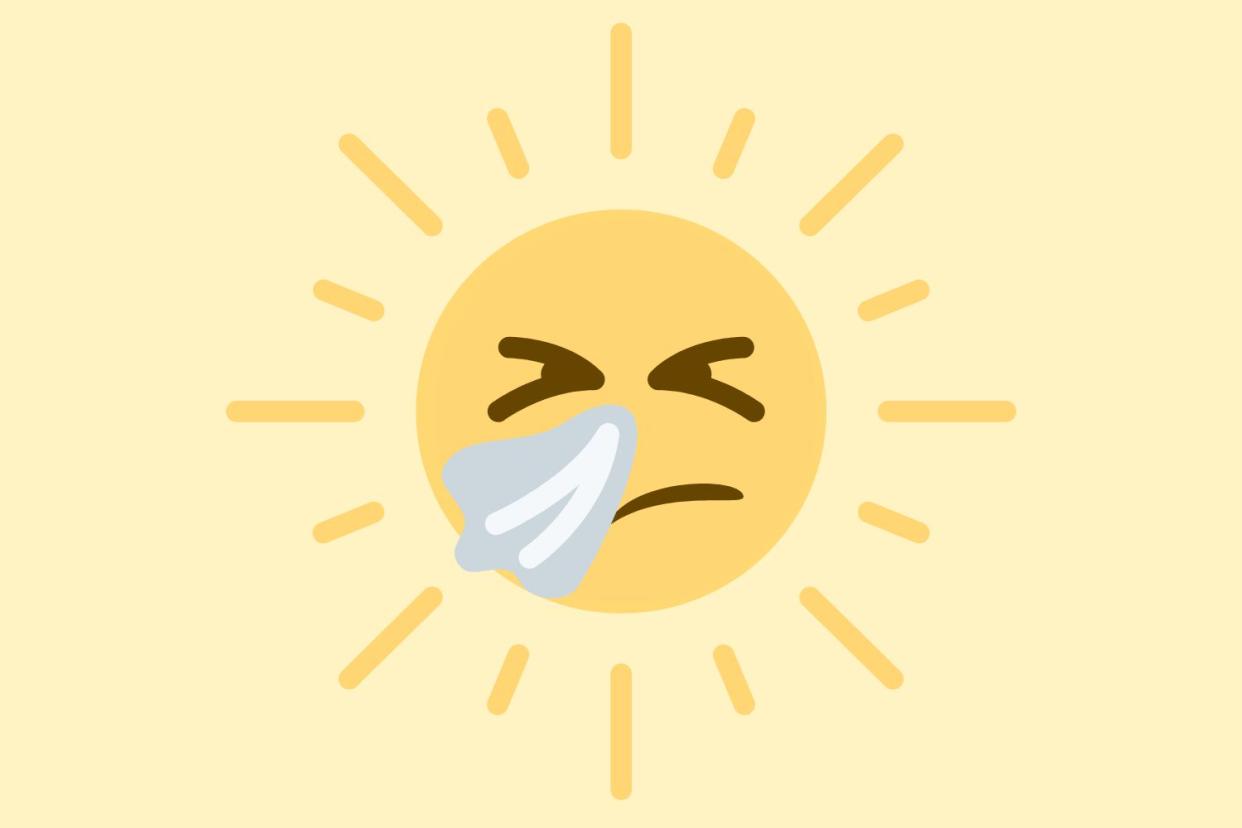Are Summer Colds Caused by Different Germs Than Winter Colds?

Fact checked by Nick Blackmer
Key Takeaways
There are more than 200 different viruses that can cause the common cold.
More heat-tolerant viruses like enterovirus often cause summer colds.
You can treat a summer cold like a winter cold—with rest and fluids.
When the weather is summery, most people assume they don’t have to worry about cold-weather illnesses like a cold. But scratchy throats, stuffed-up noses, and fevers can strike at any time of the year. A summer cold seems particularly unfair since it can keep you in bed on a beautiful, sunny day when you’d rather be enjoying the outdoors.
Are summer colds and winter colds the same thing? Do the same germs make us miserable whether the days are long or short? Here’s what infectious disease experts say are the differences between summer and winter colds.
Learn More: How You Catch a Cold in the Summer
Can You Catch a Cold in the Summer?
Tammy Lundstrom, MD, JD, chief medical officer and infectious disease specialist for healthcare company Trinity Health, told Verywell that while the symptoms of a cold may seem generic—a stuffy or runny nose, itchy eyes, scratchy throat, cough, achiness, and sometimes a low fever—there are hundreds of viruses could be the cause.
“There are over 200 different viruses that can cause colds,” said Lundstrom. “Most can occur at any time of the year, but a few are more seasonal since the temperature can determine how long the virus can live on a surface.”
Zachary Hoy, MD, a pediatric infectious disease specialist and medical director at Pediatrix Medical Group, told Verywell that summer colds tend to be caused by viruses like enterovirus or adenovirus that can hold up well in the heat, while winter colds tend to be caused by rhinoviruses, which have a lower tolerance for heat.
With the onset of warmer weather and more outdoor time, there’s less likelihood of getting sick with a cold—but it’s still possible. According to Hoy, summer colds seem to happen less often because fewer people are huddled together inside. Winter colds also tend to spread faster because people are more likely to stay inside or attend school, giving viruses many hosts to infect.
Is It a Cold or Allergies?
Seasonal allergies and colds can share symptoms—especially in the beginning when many of them are respiratory. If you’re not sure why you’re sneezing, Lundstrom pointed out a cold will cause a fever, which is the body’s way of fighting off infection, but allergies will not. Having some lower gastrointestinal symptoms and body aches can also be a sign you’re dealing with a summer cold and not allergies.
Learn More: Allergies vs. Colds: How to Tell Which One You Have
Can You Treat a Summer Cold the Same as a Winter Cold?
No matter which family of viruses is going around, all cold-causing germs are spread through infectious droplets like those put out into the air with a sneeze or a cough.
Lundstrom said that the best way to protect yourself is to “wash your hands frequently—before eating, applying makeup, or putting in contact lenses.”
Getting enough rest and eating a nutritious diet will also give your immune system a boost and help protect you if you do get exposed to a cold virus (of course, avoiding people who you know are sick with a cold will also help make catching a summer cold less likely, but that’s not always possible).
If you do get sick, experts say that you can pretty much treat a summer cold the same way you would a winter cold—stay home until you're better and practice self-care.
“The best ways to treat a summer cold are increasing hydration and getting extra rest,” said Hoy. “Since there are no antivirals for colds, your body requires rest and hydration to help keep the immune system fighting off these viruses and helping you feel better.”
Hoy added that over-the-counter (OTC) fever-reducing medicines “such as acetaminophen and ibuprofen can be used for body aches or symptomatic fevers” while you’re recovering.
What This Means For You
While you might be less likely to catch a cold in the summer months when everyone is spending more time outdoors and kids aren’t in school, there are some cold-causing germs that hold up better in the heat than they do during the colder months of the year.
If you get a summer cold, you can treat it with rest, fluids, and OTC products for your symptoms—just like you would a winter cold. Staying home until you’re better and keeping your hands clean will help keep you from spreading your germs to others.
Read Next: Natural Cold Remedies to Try at Home
